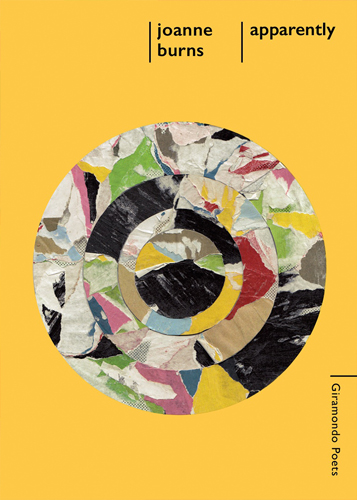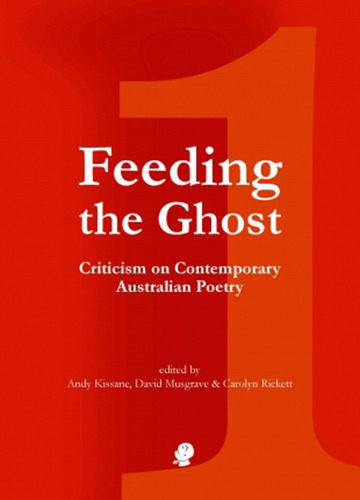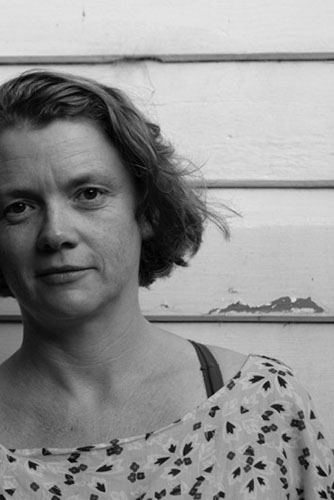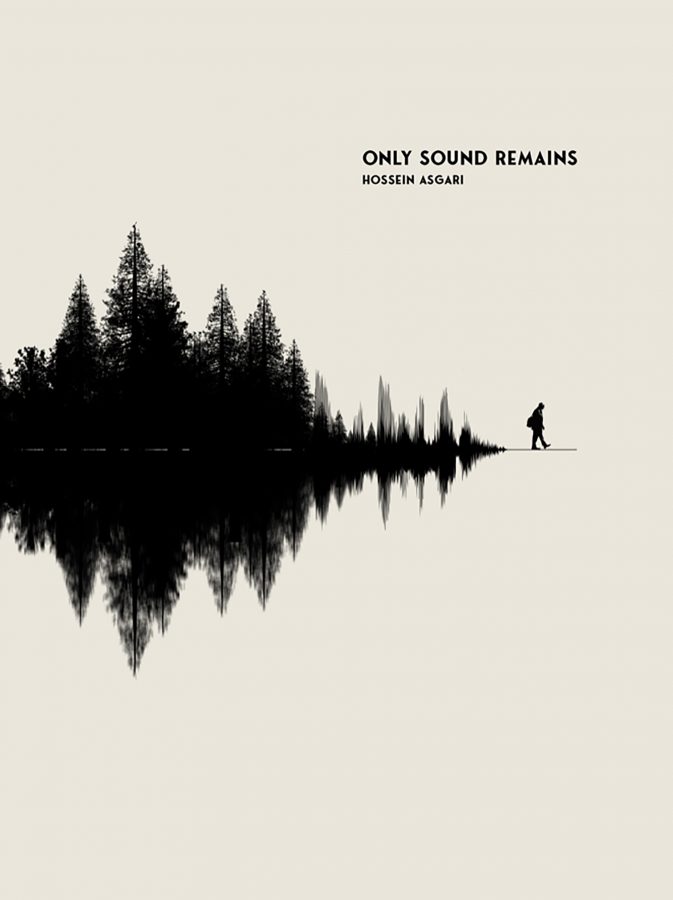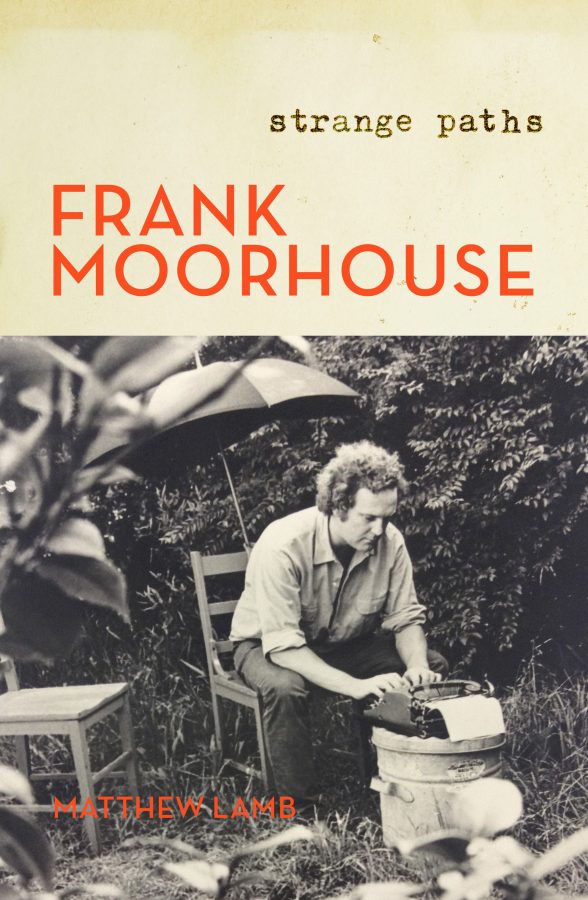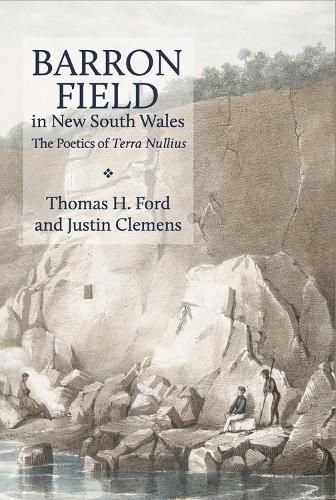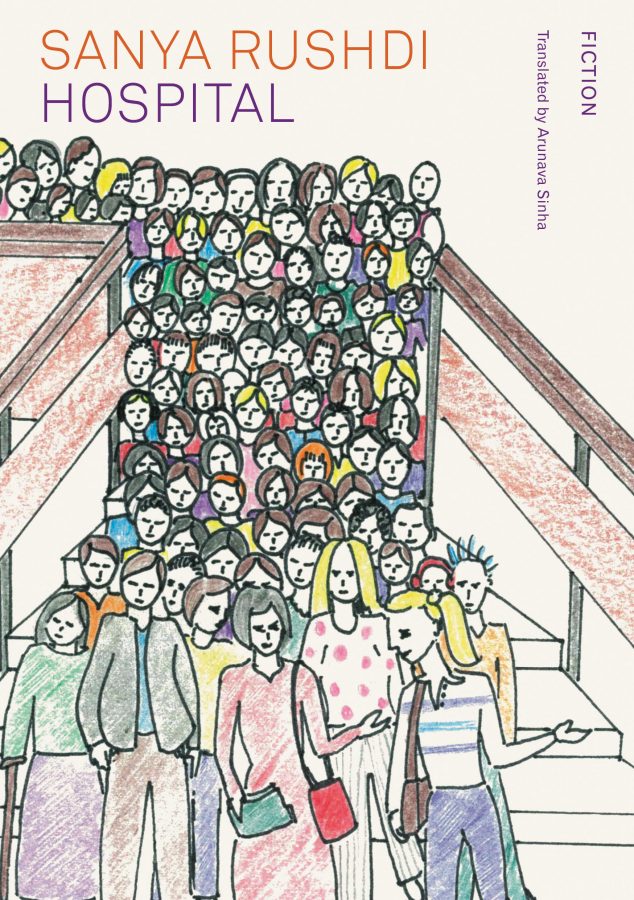When I started reading apparently, savouring the contents page, I was sitting in Wollongong’s beloved Rad Bar waiting for the band to start. I get everywhere too early, but that’s not a problem if you’ve got a book. I started humming to myself. I was humming the song I’ve been loving you too long by Otis Redding and Jerry Butler. Because apparently is by Joanne Burns. And I’ve been reading and loving her work for nearly thirty years. We don’t have anyone better than Joanne Burns. And apparently is at least as good as all the other books by Joanne Burns, and it’s better than some. So if this was going to be a solely evaluative review all I’d have to say is apparently is really, really good. You won’t find a book of poetry that’s better. I’ve been loving the work of Joanne Burns too long to stop now, I can’t pretend to approach apparently any other way.
Does this mean I’m the wrong person to be reviewing apparently? I just read a book of poetry criticism, Feeding the Ghost: Criticism on Contemporary Australian Poetry, edited by Andy Kissane, David Musgrave and Carolyn Rickett. When I read the first sentence of the introduction, I was pretty excited.
This book is aimed at providing criticism of contemporary Australian poetry in a form that is accessible to general readers of poetry.
Hurray! That is the person I am trying to write for, both as a poet and as a writer-about-poetry. How wonderful to read a whole book about Australian poetry intended for that growing group of readers I meet who are reading or listening to poetry because they want to think about the world, and to revel in it. Poetry readings used to be rather dreary, but when I go to poetry events now they are more fun, and more diverse than they used to be, which is probably not a coincidence. Perhaps this is why the editors of Feeding the Ghost have some trouble pinning down exactly what they mean by ‘the general reader’. They could have asked themselves a much easier question – who is not the general reader? And surely the first answer is that the general reader is not the scholarly reader. Except that as I kept reading the introduction to Feeding the Ghost there was this sentence: ‘Part of the reason for this scholarly collection is remedial, as we will argue, poetry review culture often lacks critical bite and the exigencies of academic research often bypass critical evaluation.’ Bump. I came back down to earth.
The conventions of scholarly writing are such that it takes a rare and determined scholar to write in a way that is of interest to the general reader. A couple of the contributors in this collection come close to writing a crossover essay, something that might interest the general reader and still be suitable for scholarly publication. Toby Davidson on Philip Salom and Lyn McCredden on Pam Brown held my interest, but they still read like papers for academic publications like the Journal of the Association for the Study of Australian Literature or Australian Literary Studies. The essays in this collection include writing on some of my favourite poets, and on poets whose work I wish I understood better. I was excited to read A.J. Carruthers on Mez Breeze, but as best I can tell, this essay never really gets its teeth into either the poems or the theoretical context for the poems. I might be wrong, though, because there are so many ideas expressed in complex sentences full of difficult words that what is being said is elusive. It’s not fair to single out Carruthers, though, for failing to transcend a flawed project. The description of this book as both ‘criticism … accessible to general readers of poetry’ and a ‘scholarly collection’ is contradictory. It is hard to imagine someone reading this book because they are interested in Australian poetry and want to know more about what’s going on. The collection is full of language that is appropriate for a scholarly journal, the kind of writing that suggests that the authors don’t really believe that anyone will ever actually do more than skim these essays. They are interested in impressing us, but not in our pleasure.
Ben Etherington once compared reading a whole bunch of reviews of Australian poetry to eating three large bowls of mixed boiled vegetables. That is, worthy, but boring. He thought that one of the reasons that the reviews were boring is because all the reviewers were too nice about the books they were reviewing. The phrase Etherington used was ‘the compliment sandwich’. The compliment sandwich is when a critic says something nice about a book, and then says something that they don’t like about the book, and then says something nice again. I’ve made whole trays of compliment sandwiches in my time. But is the compliment sandwich boring because of its 2:1 nice to not nice ratio? Or is the compliment sandwich boring because it is predictable?
The editors of Feeding the Ghost agree with Ben Etherington that one of the problems is niceness. Remember the second part of that sentence I quoted – ‘poetry review culture often lacks critical bite and the exigencies of academic research often bypass critical evaluation’. Exigencies are urgent needs or demands. Like academic researchers, poetry critics also experience exigencies. It’s hard to get good at something if you don’t do it very often. And it’s hard to keep doing something for years and years and decades if you also have to do other things in order to make a living. It is very likely that whatever other thing you do will become so time-consuming or if you are lucky, so intellectually absorbing, that you won’t be able to fit in the work of being a poetry critic as well. I think that the exigencies of the work of reviewing poetry have a greater impact on the quality of criticism than an inability to harden up and speak truth to poetry power, or reluctance to hurt someone’s feelings.
When I am writing a review of a book, the thing I want to do most of all is to make people interested in reading poetry. Whether or not I like the book or think the book is my idea of good is not very important. When I read essays and reviews, I am not doing so in order to either adopt or reject the critic’s opinion. I’m not waiting to receive the judgement of the wise and learned so I know what to think. More likely, I am reading to find out things about a work, to see what another reader got from a work, sometimes to make an unfamiliar piece of writing more approachable or to get some insight that helps me enter into my own reading.
In this essay, I’m going to think of poetry as a forest, with lots of different kinds of plants, all growing together, needing each other. Being a reader of poetry involves not just reading poems, checking definitions, looking things up, but reading interviews, published letters, essays, reviews, and then more poems. A reading of Marianne Moore’s poem ‘Paper Nautilus’ is enriched by reading Elizabeth Bishop’s memoir of her friendship with Marianne Moore, a friendship that included the gift of the paper nautilus Moore then wrote about. It’s deepened by reading about what a real nautilus is, and then reading Judith Wright’s poem about a nautilus, perhaps even finding someone with whom to discuss these poems. Being a reader of poetry might even encompass thinking about Judith Wright’s work to protect the Great Barrier Reef, or looking at a photograph of Marianne Moore throwing the first pitch of the 1968 baseball season opener at Yankee Stadium, maybe beginning to think about a new poem growing in amongst all this liveliness.
Wait, I’m supposed to be reviewing apparently by Joanne Burns, and I got distracted talking about poetry reviewing. All that to say that I love the work of Joanne Burns, five stars from me, but I know that not everyone feels as I do. So what I’d like to do is share my experience of reading her work. I’d like to offer a taste that a reader may then choose to acquire. So I’m thinking of this review of apparently as a shared reading – a close reading? Perhaps. I don’t expect these poems to unbuckle themselves to release meaning. I’m not exactly trying to figure these poems out. I’m trying to go with. And if I go further, if I go too far, well, lucky me, lucky us. I’m hoping it might be an associative reading, a reading that finds connection, a reading that digs things up, a reading that sends out signals.
Joanne Burns gives a kind of permission for this approach in her title, apparently, a word that means two things. There is an ‘apparently’ that’s what you can see, what’s plainly there, and an ‘apparently’ that’s what you have heard and inferred, a gossipy apparently. There’s a reading you can do – a ‘have a go’ reading that is often a necessary first step, and quite enough fun. It’s the reading that enjoys sounds and beats and idiom and puns and the lapidation of turns of phrase. But I’ve learned that these poems reward further thought, and another way of reading. A reading that branches, blossoms, fruits, and a reading that moves underground, reaching out and connecting with others of its kind.
I was thinking about Joanne Burns’ poetry as I read a bedtime story to my kids. It was one of the stories of Baba Yaga, the terrifying witch who is defeated over and over again by good and clever children. In the story I was reading, Baba Yaga is chasing a little girl who carries a magic comb. The girl throws down the comb and says the magic words and the comb transforms into an enormous, close-growing forest. Each of the poems in apparently is like that magic comb, small, fitting in the hand, but ready to transform into a wild world. Perhaps Baba Yaga might have been better off giving up on the chase, moving slowly and thoughtfully, enjoying the many unexpected and interesting things all around her.
So let’s try this kind of reading. A reading where we might need to become like bush creatures, and be ready to burrow, climb and gnaw, look out for spider webs, turn over humus with our snouts, deep in the forest.
apparently is a collection of poems in four sections, ‘planchettes’, ‘apparently’, ‘dial’ and ‘the random couch’. Because I am reviewing apparently, I received a media release with the book. This release includes an ‘Author’s Note’, a useful account of the different methods used to produce the poems in each section. I’ll fill you in on the details as we go.
A planchette is a device used to pick out letters in the spiritualist or occult practice of automatic writing. The word ‘planchettes’, the title of the first section of apparently, has two associations for me. The first is the technique of removing human agency from the process of creation using chance operations, dice and dictionaries, erasure and cut-ups, the things poets do when they want to let go of conscious selection and composition. The second association with the word ‘planchettes’ is that of the medium, the vessel, channelling communication from some other world. Does Joanne Burns invoke this idea with seriousness? Or with playful amusement and irony only? The figure of the medium can also stand for a performance. When I’ve read accounts of how spiritualist mediums created the illusions they used to make their living, I’ve been impressed by the skill, and often by the physical strength, the stamina and the immense self-control that must have been required to sit at the table as you created a show of sound, movement, and vocal production. Just having the subtlety required to convince your audience that the planchette moved spontaneously would take considerable effort. So is calling this part of the book ‘planchette’ a hint that the poem is plucked from the air, at random; or that every word is set down with a bundle of significance attached; or that the poet is practicing her considerable skills on us, table-rapping and ventriloquising?
The first poem, ‘shucks’ might hold some clues. Shucking is the thing you do to open an oyster, hard and hazardous work. Shuckers prise oysters open with a short pointed blade. Inside is the oyster meat and, rarely, a pearl. ‘Shucks’ is also an expression of embarrassed modesty. To ‘shuck’ is to cast something off, a skin, a shell, a garment, words of praise. The poem begins:
are you really a local
barramundi sing your tidal
runes like a wishbone …
I’ve been present at some dinner table conversations where waiters are interrogated on provenance and barramundi facts are discussed. Salt water, fresh water, frozen, wild or farmed. In this poem, the dead fish is asked to vouch for itself, to speak to the diner with its bones. The casting of runes is another form of prediction, the breaking of a wishbone a more everyday manifestation of occult dinner table practices. Barramundi are spectacular looking, huge and silver with a downturned mouth that can open to make the fish look like a sparkling cornucopia. Searching for images of barramundi turns up a lot of smiling people holding big dead fish. I suppose it makes sense for humans to be excited when we’ve successfully hunted food. I wonder if the look of pride and delight in photographs of people with expensive new handbags is a displaced version of the same excitement. Barramundi is enjoyed as an Australian fish, it’s not like cod or salmon or trout, names that belong to fish all over the world. A barra is an Aussie. When we just say ‘barra’ we can also think, a bit wistfully, of a ‘barracuda’, another kind of fish, American, a toothy, staring, fierce looking fish that has an exciting, beachy guitar riff to go with it and a car named after it, the Plymouth Barracuda. Our allegedly local barramundi is global too:
thalassic provenanced
gone to pot where is the real
atlantis, no stevedore can vouch
for this, beef cake heritage or not;
‘Thalassic’ means things that are to do with the sea, it comes from Greek. Joanne Burns asks where is the ‘real atlantis’, a paradoxical question to ask about a mythical place. Burns does not invoke the sailor or the fisherman in her interrogation of barramundi bones. Her unreliable oracle is a stevedore. The stevedore labours at the water’s edge, loading and unloading cargo. In Australia the stevedore will belong to the Maritime Union of Australia Division of the Construction, Forestry, Maritime, Mining and Energy Union. The stevedore is a physically imposing figure, a crosser of borders and a guardian of rights. I wonder why no stevedore can vouch for the location of the real Atlantis? Is it because Atlantis is underwater, while the stevedore belongs above the waves? Or is it because of the stevedore’s entrenchment in practical matters rather than the evanescence of mythological cities? The stevedore is, however, well placed to tell us if a fish was pulled up out of the water or unloaded from a freighter’s deepfreeze. The poem continues:
you juggle the pregunta’s cube like
a soda’s augury but the bubbles
are flat…
Here is a small collection of things that link: the motion of juggling, objects travelling predictable trajectories through the air, and bubbles, made of air, or not in this case, as they’re flat – absent, really. Bubbles that are flat aren’t bubbles at all, they are the disappointed expectation of bubbles. There’s nothing on the table but fishbones and flat softdrink. I suppose it is the barramundi juggling questions, keeping things up in the air. But the poem soon comes to an end, an end that is literally dashed:
… the air tramps on, its
swag of lumbago daemonian
ether stuck in a rut –
I have had a lot of trouble with the words ‘pregunta’s cube’. I went to the launch of apparently at Gleebooks in Sydney. Sitting in the audience listening to Joanne Burns read ‘shucks’ I thought that after the official part of the afternoon was over I would take the opportunity to ask her whether there is something called a ‘pregunta’s cube’. I had tried looking on the internet. My searches returned images of Rubik’s cubes or translations for the word ‘preguntas’ – ‘questions’. But by the time I got to the front of the queue and Joanne Burns signed the copy of apparently I was buying for a friend, I forgot to ask.
It was not until I was walking down Broadway to catch a train home that I realised, with a little relief, I had forgotten to ask my question about the word ‘question’. The pregunta’s cube sits in my imagination. It has begun to take on a meaning, a meaning that says, remember what you’re reading here Ali, it’s a poem by Joanne Burns, it can’t be translated, unlocked, puzzled out. It’s not for solving. It’s for reading. Enjoy the thought you had of a dinner table, and a magic fish, and a wharfie, and a glass of lemonade, and a puzzle that dissolves into bubbles that aren’t there, and a swaggie with a bad back, leaving the table, full of heavy gas. Enjoy the way the words all fit together so perfectly, and have things to say, about mythologies of the ocean, about fishing and luck, about truth and illusion, about the living and the dead, about knowing and eating, though who knows what word attaches to what idea, they all seem to switch and flicker and change as they are read.
Thanks to my press release, I know that the poems in the section ‘planchettes’, of which ‘shucks’, you will remember, is the first, were written out of crossword clues and solutions. At the launch of apparently Joanne Burns said she doesn’t do crosswords, she doesn’t like rules. But I think perhaps Joanne Burns has done the crosswords, only she hasn’t done them in the grid, and she hasn’t followed the algorithm of reading the clue, solving the clue, and writing in the answer. She has performed her own operations of solving and mystifying, leaving the grid empty, writing words on another page altogether. And now here they are in a book, for us to read, to turn back into clues and spaces.
Shall we have another go? Here are the opening lines of the last poem in the ‘planchette’ section, called ‘tipsy’:
turning crustacean
not as easy as it sounds
that drooling hunger for
the international seancery
could hoist you out of that
haven of many high tides;
it’s hard to shake claws
in a salt-reduced diplomacy
crunching the numbers ill
advised, descend to the lassitudes
of your genomic grottoes – and no
dreams of schmoozing st. augustine
Let’s stay with ‘turning crustacean’ – this might be a crab manoeuvring itself, a lobster moving in a circle, and the title ‘tipsy’ suggests angled movement. But ‘turning crustacean’ might also be us, reader and poet, transforming into a crustacean, a creature with an exoskeleton, perhaps delicious, perhaps a bit alien and frightening. Crustaceans are at home in the ocean, like that barramundi we ate earlier, but they also belong in the language of surrealism, heralding strangeness, inversion, anxiety, the bringing together of things that don’t fit.
At the launch of apparently, Keri Glastonbury described Joanne Burns as ‘the Queen of parataxis’. I laughed with everyone else while I quickly looked up ‘parataxis’ on my phone. Parataxis is the placement of phrases and short sentences next to each other, without the use of conjunctions to subordinate one phrase to the other, that is, without one phrase or sentence being more important than the others. Parataxis in the sense Glastonbury uses it is especially the bringing together of things that don’t obviously or easily fit with each other. But when we read persistently as bandicoots, we can discover or invent ways in which the apparently incongruous elements work.
Salvador Dali’s Surrealist object ‘Lobster Telephone’ brings together two things not normally associated with one another, but part of the reason that the object has the power to arrest our gaze is that the shape of the lobster works well as the ear and mouthpiece of a mid-twentieth century telephone. That the (cooked) lobster is red, and for Dali, sexy, is also important. Where is the fun in bringing two dull things together, after all. But the lobster telephone is more startling than, say a sting ray telephone or a crab telephone, and that’s because the lobster’s body echoes the shape of the handpiece. In a Burns poem, wild parataxis is all the more arresting because it almost sounds right. It’s obvious that ‘genomic grottoes’ exist only as metaphorical ideas, but international seancery and salt-reduced diplomacy could just about be things we hear discussed earnestly on Radio National. They make almost-sense, like Dali’s lobster telephone, so much more upsetting than either sense or nonsense. When a reader approaches a text there is often an expectation that, as reading progresses, the reader will understand more and more about it, will be able to follow a story, identify a theme, make a meaning. From the blankness of not-reading, meaning unfolds. This does not happen here. Meaning might accrete, like oysters growing on a rock, the process of reading a constant present of ideas and sensations, the poem a salty, tangy, taste.
Let’s say goodbye for now to the compact ‘planchette’ poems and move onto the next section of the book, ‘apparently’, in which the prose poem can be found. In a recent interview Joanne Burns described her uptake of the form of the prose poem after writing Andrenalin Flicknife, a book of compressed angry poems of short lines:
I started to move into … a short prose poem and I like that because I seem to be able to drop a lot of that intensity of language and use more ordinary language of speaking and talking and just — it seemed to allow a freedom, a freedom to just write what you’re thinking or talking about and that — often that kind of writing in the colloquial sometimes brings insights which the more poetic and the artifice of poetry in the line break doesn’t provide.
In this interview, Burns makes it clear that her introduction to the possibilities of the prose poem did not come to her from Charles Baudelaire. She was reading prose poems like Julio Cortázar’s ‘Instructions on how to wind a watch’ and Francis Ponge’s ‘Snails’. In such works she met again her own deep interest in material objects and their mysteries. Writing prose poems, Burns’ work became more colloquial, and the colloquial in turn allowed new ways of playing with language. Colloquial language is the language of speech, and speech is often fragmented, allusive, deictic, interruptible. I have always thought of Burns as an intensely visual poet, and she often describes her own poetry in terms of the visual. However with this book I have become intensely aware of how important spoken language is in her poetry.
The thought I had about this came to me as I was transcribing some of the things that Joanne Burns was saying in that interview. And I was reminded of what I knew already from the oral history and audio projects I’ve worked on over the years, and that is that spoken sentences are quite different from written sentences. When a person speaks their words arrive in real time – and we are watching for all the non-verbal clues that are coming from the person or people we are speaking to, so there is dialogue even when there is only one voice speaking. When a spoken sentence is transcribed it looks broken and fragmentary, the syntax isn’t quite right, it’s full of the pauses and breakings and trailings-off that the written sentence uses dashes, commas and ellipses to describe.
Joanne Burns herself often refers to the visual qualities of her poems, talks about sights and observations, drawing on ways of thinking about film. I would like to draw attention to Burns as a listener. It’s not just that she sees things, it’s that she hears the language of the world around her, brings together literary, commercial, civic, and vernacular speech. Her poems are distinctly her voice, but they channel or quote voices overhead from times past and the next table. It’s in the word choice, the way words are grouped together, the emphasis on certain vowel sounds, even twisting so we can hear certain accents. Burns makes the most of everyday speech, its breaks and pauses, and its flows.
Describing the prose poem ‘shopping’ from her 1988 book blowing bubbles in the seventh lane, Burns says:
it’s a very short prose poem, but I think within it, the rhythms and the way it rolls out — the lines of the prose poem rather than the line break poem — give it a kind of rhythm of the ruminating over what shopping could be in a kind of an interior way.
My ‘Author’s Note’ tells me that the prose poems in the ‘apparently’ section of apparently ‘grew from dreams that had a narrative quality’. Let’s read the prose poem ‘para-graphic’. Irresistible title, if we’re interested in prose poemerie. Prose poems are written in paragraphs, but we can read again and think of ‘para-’ as a prefix that can mean beside or beyond, and graphic meaning visual, and perhaps even diagrammatic. Graphic is also one of those words with a bit of slippage, as phrases like ‘graphic violence’ and ‘graphic nudity’ – which of course mean violence and nudity that you can see – begin to mean something like ‘strong’ or ‘a lot of’. The poem opens with the poetic equivalent of film and televisions establishment shot, an image that will show the viewer where the action is taking place. In this case it’s
a vaulted hall.
What’s more important here, the description of the building, or the vowel sounds used to describe it? They reinforce one another, as when the mouth makes the words ‘vaulted’ and ‘hall’ it becomes the shape it describes, the jaw, the tongue, and the roof of the mouth all turning to arcing, vaulted shapes. A vaulted hall is architecturally reminiscent of a church, perhaps even a cathedral. That’s where vaulted ceilings come from, after all, ecclesiastical architecture. I had always thought of Joanne Burns as an amused sceptic, a rationalist. I had overlooked all the evidence of an abiding interest in things spiritual in her poetry. This was my own lack as a reader, an inability to see what was plainly there on the page because I assumed that this poetry I loved and that resonated with me should reflect my own ideas about the world. Keri Glastonbury made things plain for me in her launch speech for apparently when she made an insightful X-Files reference, stating that ‘Joanne Burns is both Mulder and Scully’, that is, both the one who wants to believe, or at least remains deeply interested in spiritual matters, and the sceptic who questions, investigates, gently mocks.
A vaulted hall might also belong to an elite school or university, and it is this reading that opens up to me as I continue to read into ‘an assembly, a reunion. visitation. figures stroll or gather round through the shadows of the columns.’ What’s happening is a get together of some kind, with figures moving in a sort of in-and-out the windows game – not among the columns themselves but around the shadows of the columns. Things happen vaguely, indirectly, at a remove from the narrator. I know that these prose poems arose out of dreams. Their genesis is akin to the ‘planchettes’ poems in that they are not produced through writing with conscious intention. And the scene described in this poem is certainly dreamlike. It also calls to mind both literary and popular fiction of girls and women finding their place in institutional life, Henry Handel Richardson’s The Getting of Wisdom, Dorothy L. Sayer’s Gaudy Night, Muriel Spark’s The Abbess of Crewe, Yvonne Trewin’s Jean Becomes a Nurse. The repeated pattern of these stories is that the new girl has a tough time. It is only by finding the right formula of conformity and rebellion, building relationships and alliances, and ultimately, moving up through the institution’s hierarchy, that she comes to belong and feel herself to be whole again.
Let’s read on:
i passed you there, who once stirred my young heart, questioned the rhythms of my eager mind
I’ve had these kinds of dreams, where people from the past turn up, the atmosphere a vapour of difficult emotions. Then we learn that the figure who has appeared in the dream is dead, there is an ‘obituary photograph’, without ‘those mysterious garments of disguise’. The figure in the dream turns out to have been an ordinary person, and mortal. And now the poem makes a turn – ‘the atmosphere grew redundant, unnecessary.’ Those shadows, that vaulted hall, those icky feelings of not knowing, not belonging, none of that is needed anymore. What happens next?
i walked away further and further across the sequestered territory. how long it took, how far I travelled i do not know, but there it was, fresh and thrilling. this open land: green, benign and promising, it’s river vast as a horizon. such prolific recognition.
What’s going on in this prose poem? There’s a literal story to follow – we were inside a hall, and now we are outside, in open space. Perhaps not quite in it yet, as the narrator of the poem describes themselves walking across ‘sequestered territory’ – so still enclosed, still on someone’s territory, until they reach ‘open land’. And this might be an image of paradise, or of Jerusalem, or the commons. In Australia, it might also be the coloniser’s self-delusion, the convenient lie. The vaulted hall and the open land. ‘how long it took, how far I travelled’ sounds like another kind of language. What does ‘such prolific recognition’ mean? Is it that the narrator of this poem recognises the place? Is it a kind of dreamland or spiritual ‘home’, heaven even? Or is it that the narrator receives recognition in this place? Is this open land the place where unconventional translations might at last be understood? Para-graphic. What you get is more than what you see.
The third section of apparently is ‘dial’. What a beautifully analogue word, redolent of warm Bakelite. A dial tunes us in, or shows us where we are. It’s about circles, and it’s a slang word for face. We can dial up, down, or in. There are dials on old radios, on steam engines and rocket ships. Last century’s telephones had dials. Dial, such an everyday word, like penny, I can use it with facility, it pops up in idiom, but in a digital world, a little anachronistic. Until we remember or discover that dial is cousin to the word ‘diurnal’, because both ‘dial’ and ‘diurnal’ come from the latin word for day, ‘dies’.
Joanne Burns uses minimal punctuation. No capital letters, never, not ever. And sometimes no full stops. Joanne Burns has said that she decided to go all lower case so that all the words in the poem had ‘a level playing field’. The observant reader will find apostrophes and commas, and Burns does her bit to keep the semicolon in business. In the poem ‘mission drift’ a hyphen is namechecked, but judged inadequate:
the triathlon sedition needs
more than a hyphen
Maybe these lines are all about the meter and the vowel sounds, and about the rhyme – the kind of verbal earworm that sends a writer off looking for a pencil, whether to keep the phrase for later use or just to get it out of her head. The words triathlon and sedition side by side are incongruous unless you’ve been following conservative politics in Australia for the last decade or so, in which case they belong together like bread and butter, shoes and socks. What’s more than a hyphen? A dash, perhaps. For the dedicated athlete, the word ‘dash’ comes after ‘hundred yard’. A hyphen brings things together, but a dash keeps things at a distance.
There’s a poem in this section that opens with an Emily Dickinson reference. The poem’s called ‘snob’ and it starts out:
don’t think i’ll hear
a fly buzz when i die
‘I heard a Fly buzz – when I died –’: the Dickinson poem begins with the fly and ends with the presence of God. Burns anticipates instead:
… a voice booming
instructions on where to queue
for the official passage there being
a jam in the tunnel …
Is this the voice of God? Or do the neoliberal dead only get God’s pre-recorded message? In the second stanza there’s another familiar poetic death, easeful, it’s italicised in the poem. This is death as it appears in John Keat’s ‘Ode to a Nightingale’, ‘I have been half in love with easeful Death’. There’s another poet on death in the poem, Wislawa Szymborska, whose image of the moment of death as a vanishing, ‘like a spark’ is rejected in favour of ‘a drift of/prodigal particles’. The final wish in this poem is for a reincarnation, not as ‘dog or horse or rat’ but ‘something more extra-terrestial’. It’s a good joke, funny, but what a burn. Imagine not wanting to be reincarnated on your own planet. Earlier in the poem there’s a reference to grand finals and Masterchef that might suggest why.
There are poems in ‘dial’ that reveal anger and sadness. Or is that just me, walking into the forest and finding what I’m looking for.
two weeks of vertigo I’m gone gone
there’s no hitchcocked glamour this
is the season of struggling with even
quotidian grammar
The bodily struggle with vertigo robs the narrator of ease of being in the world, and even of finding pleasure in language. But that’s not all – the failure of the body and the body politic are both worked through in ‘dial.’ It’s lucky I watched that interview and heard Burns talk about her angry poems in Adrenalin Flicknife, because I might have said that the poems in this section are a new thing for Burns. They go further than the tight, ironic critique of the world of finance that she wrote in brush and the playful thinking about religion in amphora. Observation has given way, in the poems in this section of the book, to anger and comment to castigation. It makes for a very satisfying read. In ‘dispatch box’ she writes:
you show us how you stir
a giant vat of chocolate paste …
… bright smarties or were they m&ms
hmmm….. these kittle buttins, studs
sink into confected waves…you announce the arrival of a hot new
product, tangerine [no not pea-green]
lifeboats to fill with ninety human ingredients
The image of the visitor in a workplace, politician or television host, wearing a hard hat and fluorescent vest, or white coat and hair net, playing dress-ups, having a go at performing tasks, amused at their own ineptitude, stirring of a vat of chocolate paste, enacting ‘the sweet swirl of political can-do’. A Charlie in the chocolate factory, stirring and pouring lollies into ‘confected waves’, a reminder that some waves are made, by stirrers. The waves of chocolate turn into real waves on the ocean in the next stanza. The image of the workplace visitor, signalling his ordinariness while he signals his commitment to a version of economic activity, winds tightly with the image of ‘human ingredients’ in a ‘hot new product’, a lifeboat. It’s not a pea-green boat. The pea-green boat belongs to the owl and the pussycat, a pea-green boat suggests honey and money. The boat is tangerine – not plain old orange – tangerine, perhaps there’s an association with ‘dream’, perhaps the tangerine is to keep the reader alive to sweetness and tang from the opening in the chocolate factory. The third and final stanza of the poem shows us a postcard scene where,
along our sovereign coast, waterways, and harbour
shores sleek white watercraft gleam and purr with
plutocratic pride wealth’s privacy has been dispatched
offshore to safer havens; fortunes seek asylum at
a tap, a tweak, a fingertip: a flotilla of touch pads.
Because I have heard Joanne Burns talk and read her poems, I can hear them in her voice when I read them to myself. At first the poems in ‘dial’ sounded laidback and amused to me. The relaxed tone didn’t last. ‘dial’ starts with a bit of irritation in the poem ‘sting-along’ but from there on things get worse, there are hungry children over the page, and bombs and mass graves and rodents and creeps and the raft of the medusa and ID cards and machine-gunned corpses in these poems. They are mixed in with tennis and french fries and skateboards and sandals, and this is a wit that can cut more than carrots, so cumulatively the effect is such that even a line like ‘would you want to wear high/heels into yodelic canyons’ becomes a rallying cry.
It’s a lot of work, reading poetry, and writing it. Time to return to ‘the random couch’, the closing section of this book. There are just six poems in this section, written from the couch and perhaps out of a larger randomness, the uncountable tiny events that have brought about the situation of this poet sitting on this couch in this city at this time, the way that any moment in spacetime has a kind of randomness. Stick a pin in here-and-now, and write whatever’s in your head. Phew. Joanne Burns has been writing poetry for a long time. She has taught poetry – I was one of her students for a couple of sessions – she has given workshops, she has published books and given readings. She goes to literary things, reads journals, reads books, reads reviews. She writes and writes and writes. She is respected by her fellow poets. In the interview I watched Burns described herself at the beginning of her life as a writer:
I was sitting on the divan in the sunroom looking out on the harbour.
Sunshine, a divan, looking out, in Sydney. This is a good an introduction to the world of Joanne Burns, and a pretty good conclusion, too. The last poem in ‘the random couch’, the last poem in the book, is called ‘crunch’. The poem begins:
fulfilling those dreams
with cornflakes wasn’t as easy
as it smelt…
Cornflakes, at least, we can get our teeth into. Except. Though the title of the poem promises ‘crunch’ many readers will know that the cornflake experience frequently disappoints, the crunch turning to mush. This is perhaps part of what is happening here in these opening lines. The crunch of cornflakes is that of ‘the necromancer’ – an illusion. A little later there’s the question:
… can you
bear a curse of no_winged
sandals…
Why the underscore? I’ve got feelings about that underscore, but I’m not sure how to put them into words. It’s not a hyphen or a dash, perhaps it’s some fragment from a long web address. Plenty of us wear sandals, and we know Hermes wears winged sandals – but who wears sandals that are no_winged? Or are they knowing? Knowing sandals? I’d like a pair of those. Hermes’ sandals are made of gold, the colour of cornflakes. Hermes is the messenger of the gods, and his fancy sandals let him travel wherever he wants, just by thinking about it. Just the footwear you might need if you’re reclining on a random couch to think up poems. There’s something else that’s golden in this poem, it’s the sun that ‘shines too much’. The next lines make reference to John Donne’s poem ‘The Rising Sun’.
you’re the busy old
foole hatless in the lethargic
plaza…
I didn’t recognise the quotation, I had to look it up, but I knew that phrase ‘the busy old foole’ must come from some other poem because of the odd spelling. I thought it might be a medieval character, some odd ball, I imagined a little figure from the Book of Hours. So wrong. In Donne’s poem, the busy old foole is the sun itself. The sun that, like Hermes, has travelled all around the world, just to peep in the curtains and interrupt Donne and his lover in their raptures. Things end happily for the couple in Donne’s poem, the sun floods the room, filling it with warmth and light, reinforcing their illusion that they are at the centre of the universe. I’m not sure what to think about the end of ‘crunch’:
the grounds shift
bitter beneath your eyes
such an indifferent barista
you grab at the walls of
next week’s hallways it
all seems so familiar
Coffee grounds are supposed to be bitter, that’s part of the kick, but no-one wants an indifferent barista. The speaker in the poem is unsteady, perhaps moving too fast in their orbit, lurching into next week. Hallways. I suppose it depends where you think a hallway is taking you, but a hallway seems more optimistic than, say, a corridor or tunnel. I’m not sure though, if the familiarity here is reassuring or dull. That’s no_winged sandals for you, I suppose. But the splodges of gold in this poem are leaving me with a warm glow anyhow.
Because I’ve written hundreds and hundreds of varied short pieces, rather than novels, it’s hard for me to get an overview of the sources of my writings. They seem to float above me like elusive dust motes…
That’s Joanne Burns in 1996. Until now, I realise, I had only read the Scully in her work, the sceptic. It took the insight of other readers, of Keri Glastonbury and Ivor Indyk to show me the Mulder, the interest in religion and the spiritual. The last time I wrote about Joanne’s work she sent me an email, a kind of acknowledgement. When I replied I said something like there’s something I feel I haven’t reached, something I’m not understanding. After apparently I feel a little closer. I’ve been thinking about what it was that Joanne Burns responded to when she read the work of Julio Cortázar and Frances Ponge. Why did she take her love of language and ideas to these poets. She shares with these poets an interest in everyday things, material things. Soap, snails, ‘wheat ear and long hair and two lumps of sugar’, as Cortázar wrote in his poem ‘A love letter’. These material things, objects, places, are both evidence, and evanescent. The material world is that which we have available to us to experience, to read. But even as we experience it, the material world is passing away. Think of those dust motes that Burns returns to. That dust is us, hair and skin, breaking away and breaking down, passing, mixed up with other things like pollen and dirt and particles of lead and feathers. Dust motes made visible by sunlight are revelatory, they are the evidence of our presence and of our passing, our selves and our connectedness with the other things of the world.
But that’s just what I think. You can read it for yourself.
Works Cited
Joanne Burns, ‘Writing from Life,’ Southerly 56.4 (1996), pp. 78–82.
Ben Etherington, ‘The Poet Tasters’, Sydney Review of Books, 30 January 2015
Ivor Indyk, interview with Joanne Burns (2015)
Andy Kissane, David Musgrave and Carolyn Rickett eds, Feeding the Ghost: Criticism on Contemporary Australian Poetry, Waratah: Puncher and Wattman 2018.
